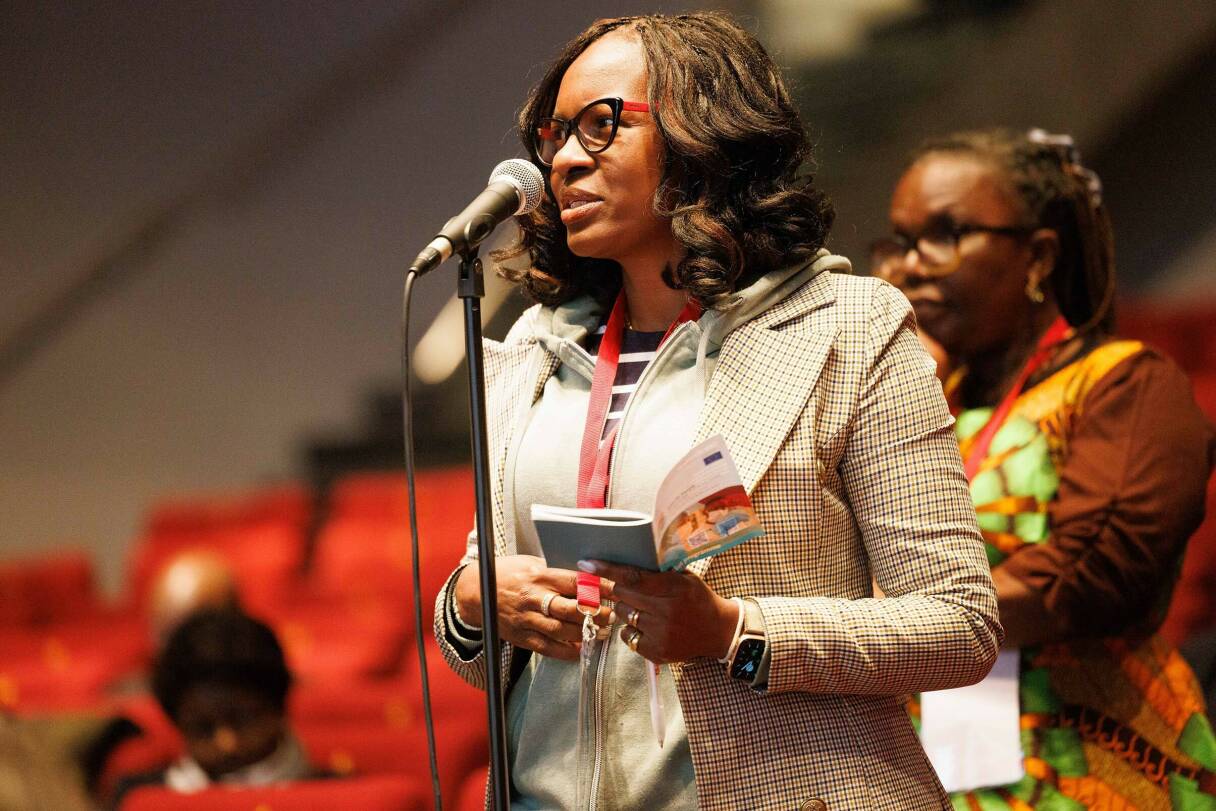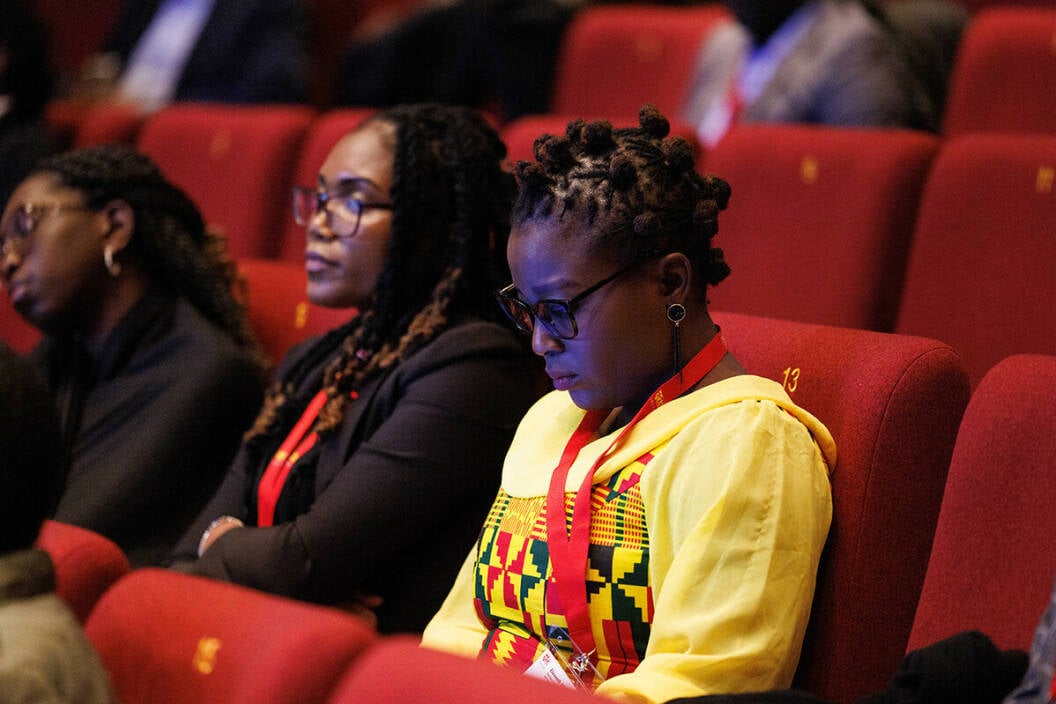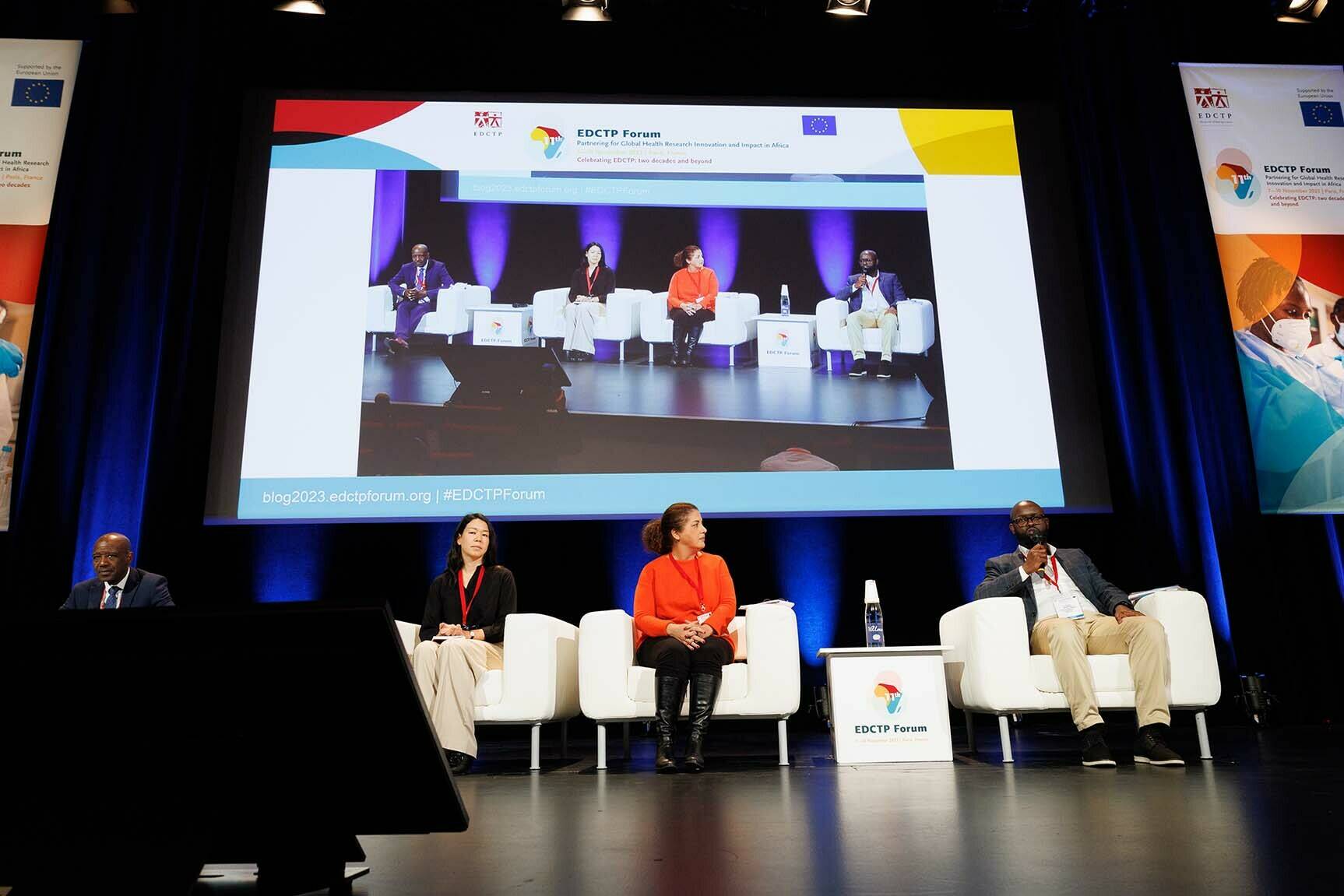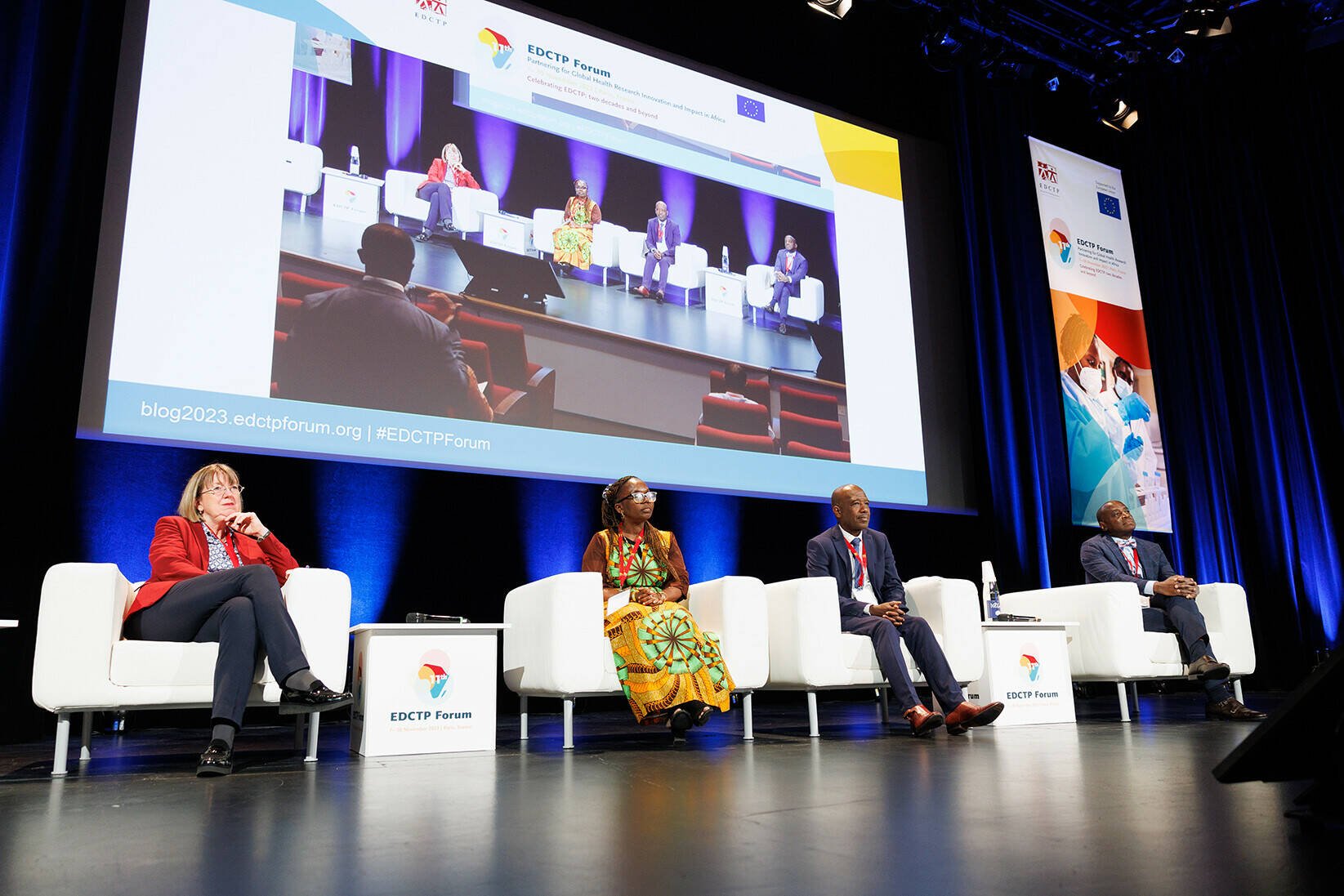Mapping timely vaccination
TB, T cells and COVID
Detecting malaria in pregnancy
HIV testing in fishing communities



Mentorship was felt to be an important component of the programmes. The programmes have adopted different approaches to mentorship, covering technical skills as well as more general support in areas such as career development.
Programmes include groups of English-, French and Portuguese-speaking countries. Several programmes have recruited from multiple countries and been mindful of the need to ensure diverse representation on their courses. One of the biggest challenges related to language barriers, particularly for English-language programmes recruiting students whose first language is not English. The need to provide tailored support for such students was recognised. This illustrates a more general principle of offering individualised support according to need, rather than attempting to build a ‘conveyor belt’ of new fellows.
The pre-Forum meeting also heard from several of the students themselves, who praised the quality of teaching they had received, the flexibility and high levels of support provided by hosting institutions, and appreciated the opportunity to build professional networks with their peers and other academics.
Epidemiology and biostatistics fellowships
The ‘Epi-Biostat’ initiative has been designed to build skills in epidemiology and biostatistics in sub-Saharan Africa, in order to strengthen the capacity of countries to monitor and respond to the spread of infectious diseases and emerging outbreaks. A key goal is to strengthen links between clinical researchers and national disease control programmes.
Ten programmes have been funded through the initiative1, each supporting multiple fellows. In all, the programmes have recruited 151 fellows, 63 of them female and 88 male. Nearly all of the programmes are based in sub-Saharan Africa, often with European partners. Institutions in more than 30 sub-Saharan African countries are represented in the programmes.
The initiative sits within the context of Africa CDC’s New Public Health Order for Africa, a framework for action launched in 2021 to ensure Africa’s health security. The New Public Health Order seeks to develop the region’s capabilities in order to achieve self-reliance in health protection and to safeguard the region’s health security. Workforce development is one of the five strategic pillars of this new framework.
A panel discussion highlighted several key aspects of the initiative. Selection of fellows has been important, with programmes often working closely with local ministries of health to identify suitable candidates. Importantly, the initiative has shown that high-quality training can be carried out within Africa.
A key theme was the difficulties experienced in recruiting women. The programmes had made special efforts to ensure a good representation of women, explicitly encouraging applications from women in programme advertisements and including gender-related considerations in formal programme governance documents and policies. In addition, programmes have sought to provide active support to women during their participation.
A final panel discussion touched on other critical areas. These included the importance of structured mentorship programmes, assessing the quality of scientific training, and longer-term sustainability, particularly the need for increased domestic funding on health research in sub-Saharan Africa.
A new EDCTP initiative, the African Clinical Research Fellows Funders’ Group provides a forum through which funding bodies providing clinical fellowships in sub-Saharan Africa can meet, exchange information and develop collaborations. Launched in 2023, the Group currently has around 12 members, but applications from possible new member organisations are welcomed.
A range of current and former EDCTP fellows discussed the importance of their fellowship funding and wider career development. Professor Jean Nachega, who holds positions at Stellenbosch University, South Africa, and the University of Pittsburgh, USA, highlighted the importance of mentorship and the development of international networks. His EDCTP Senior Fellowship helped to further strengthen his scientific reputation, and he has gone on to secure extensive additional funding, including major capacity-building grants from other funders.
EDCTP Senior Fellow Professor Dorothy Yeboah Manu, the first female director of Noguchi Memorial Institute for Medical Research at the University of Ghana, suggested that there were multiple aspects to human capacity development, including technical training and skills development, mentoring, continuing professional development, and learning and broadening perspectives through collaborations. She called for researchers to make more efforts to bridge the researcher–policymaker divide, to encourage more local investment in research by demonstrating its value. As well as promoting interdisciplinary team-based approaches, Professor Yeboah Manu also argued for a prioritisation of leadership training, and highlighted the importance of mentoring and collaboration to build capacity.
Industry has a critical role to play in the development of new medical interventions, and Dr Jutta Reinhard-Rupp, Head of the Global Health Institute at Merck in Switzerland, provided a perspective on capacity-building and human capacity development from an industry perspective. Merck is part of the partnership that has developed a child-friendly formulation of praziquantel for chemo-preventive mass administration campaigns. Dr Reinhard-Rupp identified a range of key needs for effective human capacity development, including development of scientific leadership skills, mentoring of early-career researchers, and learning through international networks. To ensure sustainability, she argued for more emphasis on South–South collaborations, and for greater engagement with local industry, as R&D and manufacturing capacity in the region begin to grow.
scroll down
Fellows’ Day Meeting
The Fellows’ Day Meeting provided an opportunity to reflect on EDCTP2’s fellowship programme and its contribution to capacity-building in sub-Saharan Africa. EDCTP2 has had a strong focus on fellowship funding – there was a seven-fold increase in the number of fellows supported by EDCTP between the first EDCTP programme and EDCTP2, with more than 350 individuals supported in total.
The EDCTP2 fellowship programme supports African researchers at all stages of a research career, helping to ensure a continuing supply of scientific talent. Fellows also made invaluable contributions during the COVID-19 pandemic, conducting studies and advising policymakers.
Discussions highlighted the need to build a critical mass of health researchers in sub-Saharan Africa. Africa is home to 20% of the world’s population, and accounts for 25% of the world’s disease burden, but generates only 2.5% of the world’s scientific outputs. Further progress will depend on strong collaboration across funders to achieve optimal impact and overcoming barriers to research collaboration, including linguistic barriers. Delivering on World Health Assembly resolution WHA75.8 on strengthening of clinical trial capacity, it was argued, will require not just investment in physical infrastructure but also in the development of people.
Two pre-Forum meetings examined the contribution of the EDCTP2 fellowship programme to capacity-building and the progress being made by programmes providing master’s-level training in epidemiology and biostatistics through a joint EDCTP and Africa CDC initiative.

Focusing on fellows